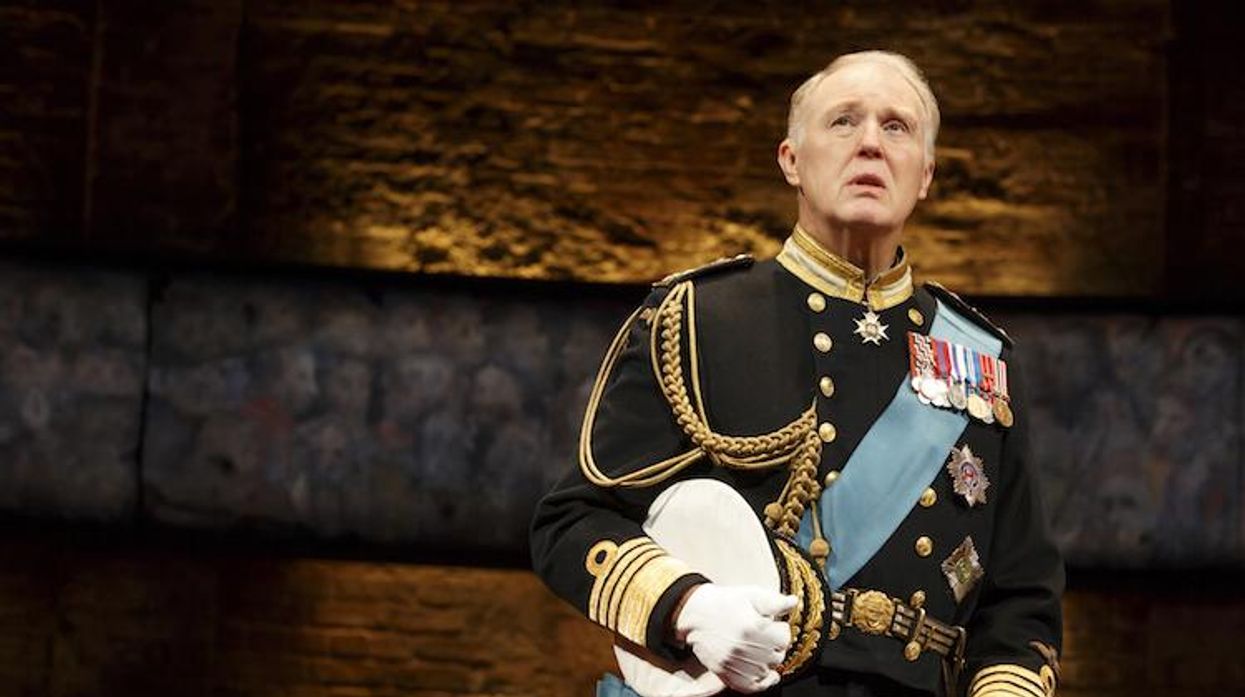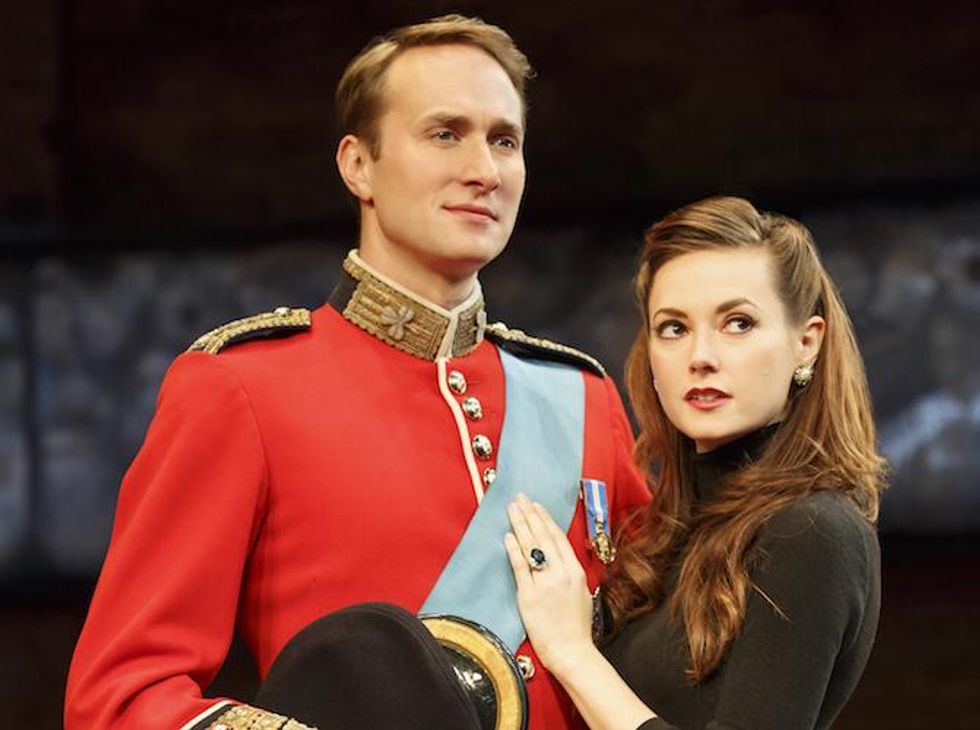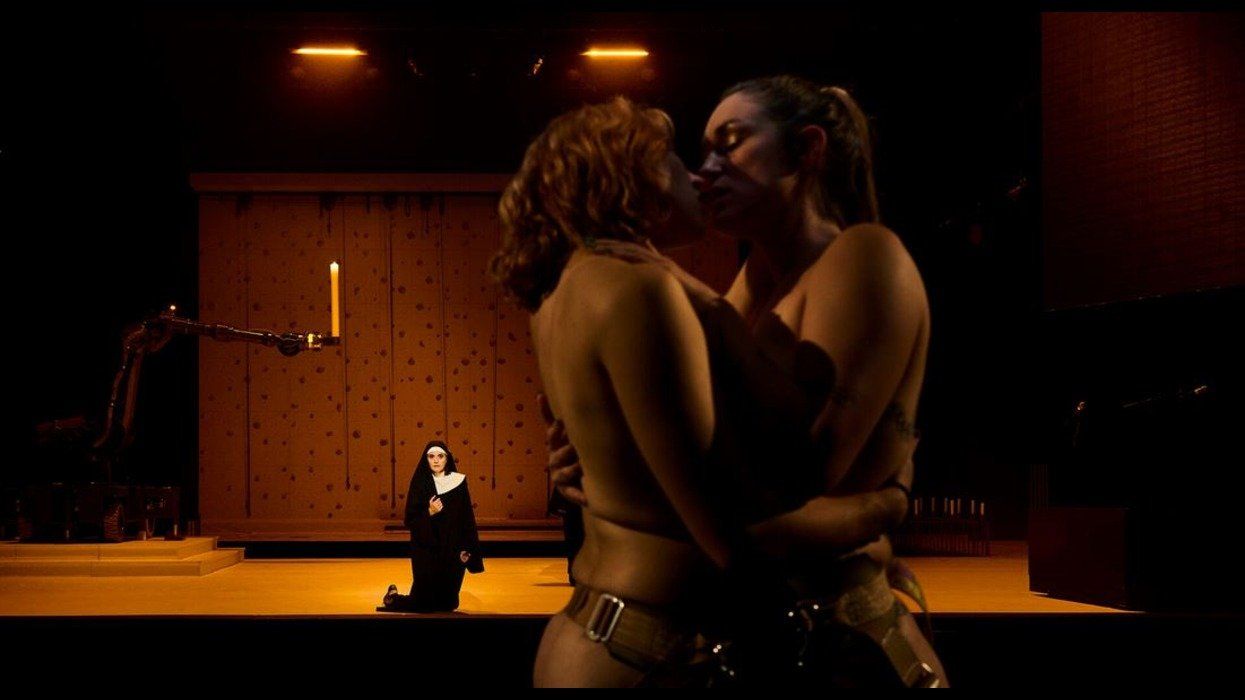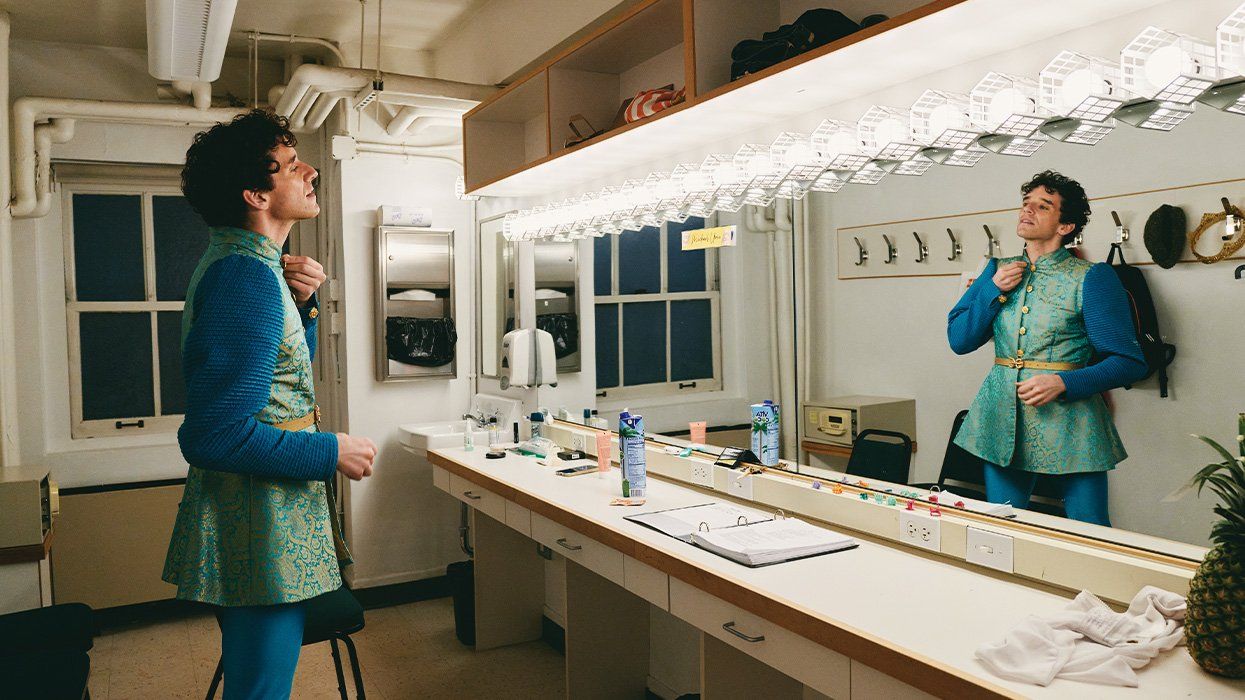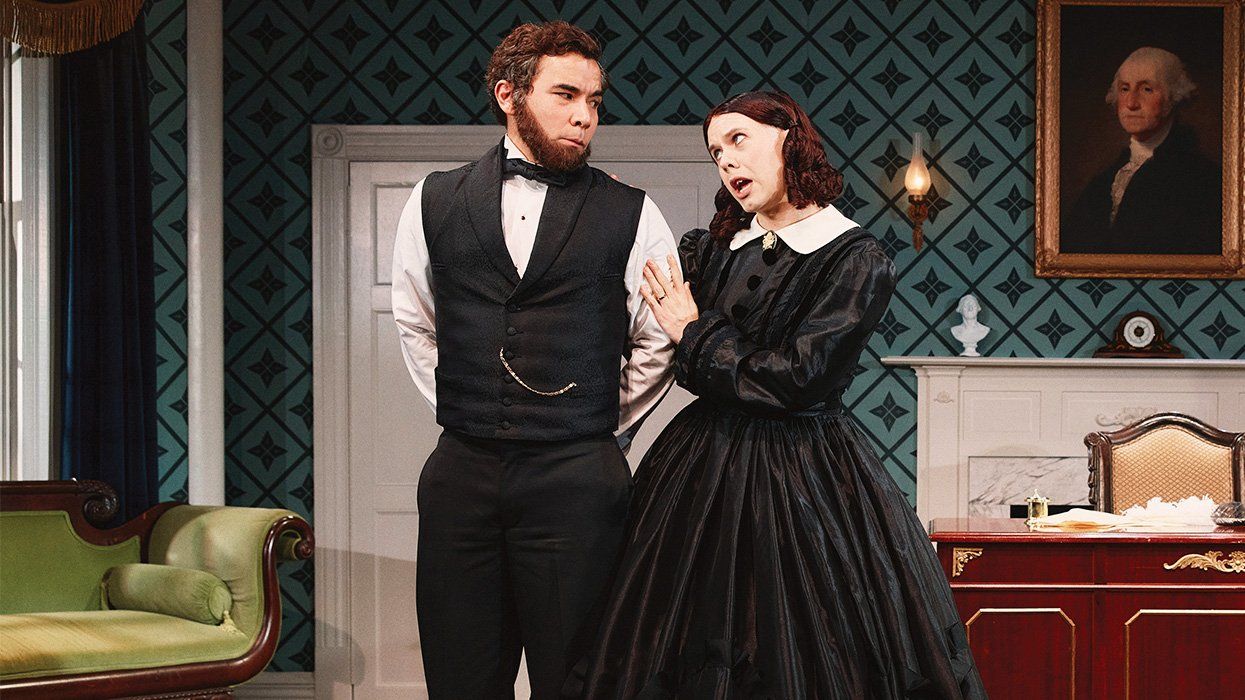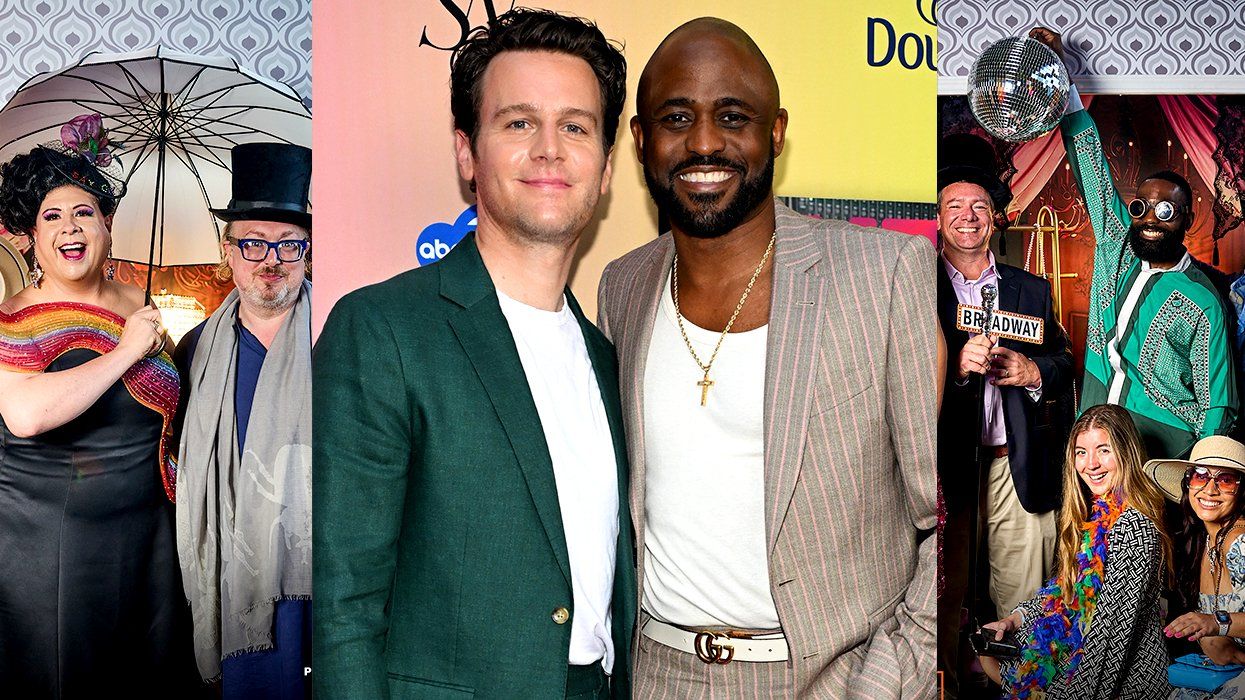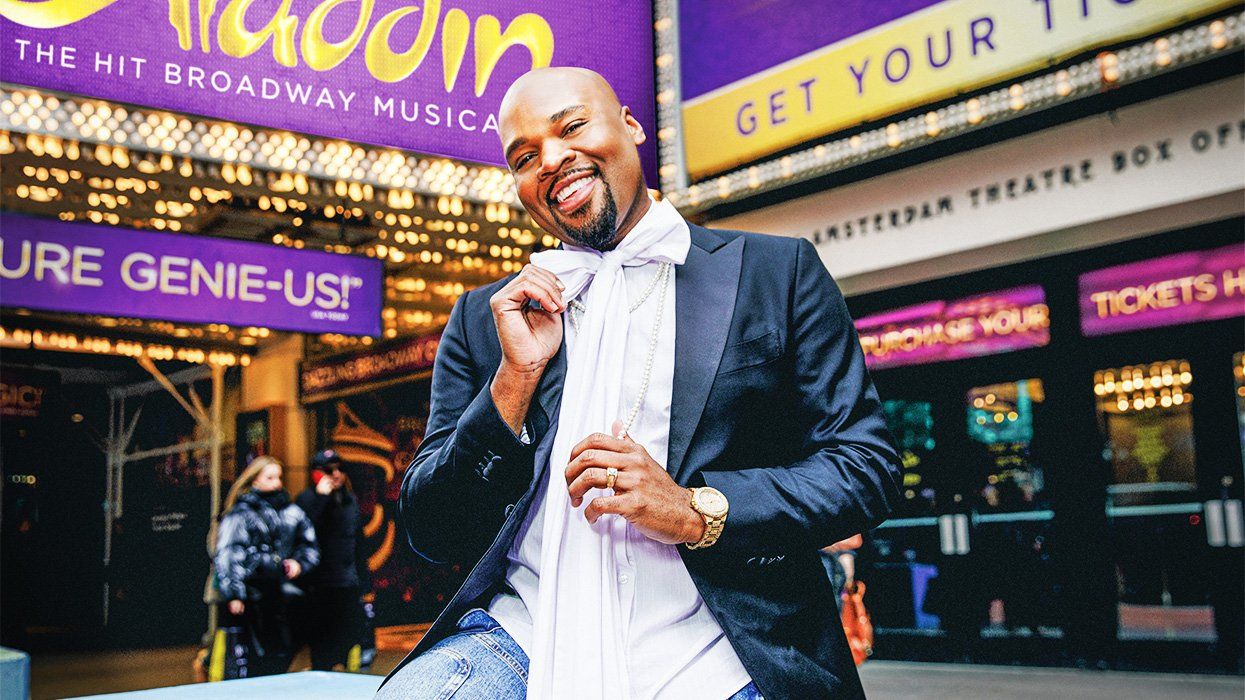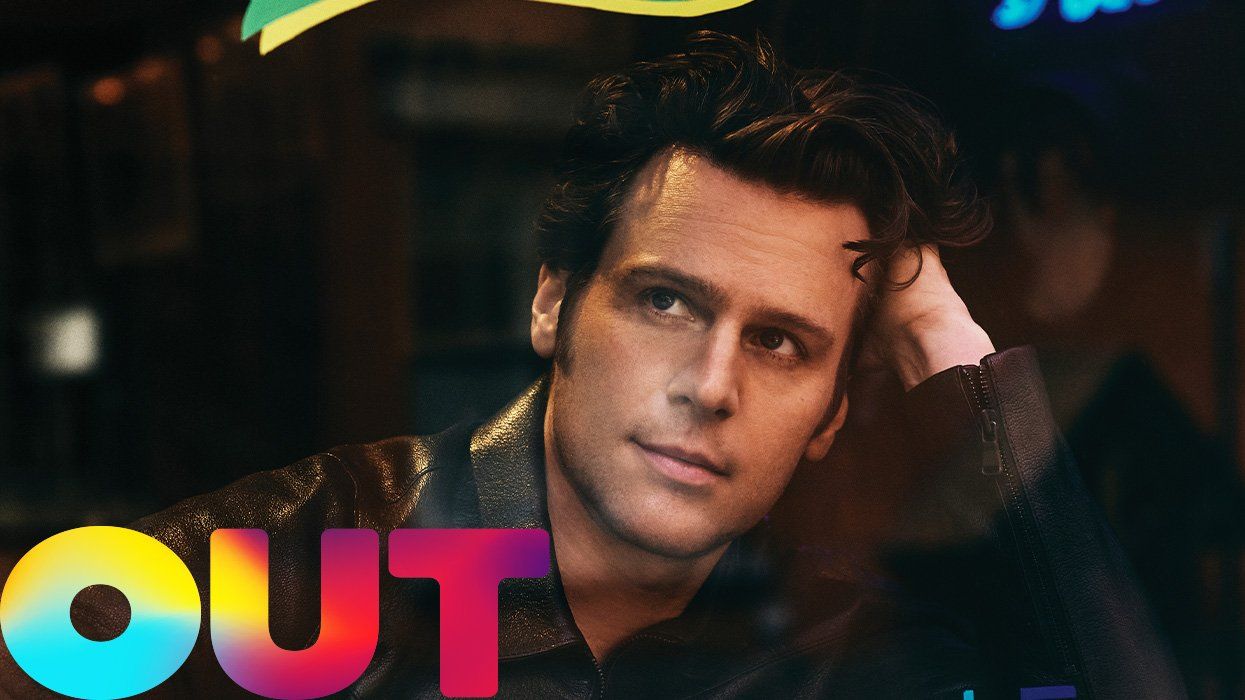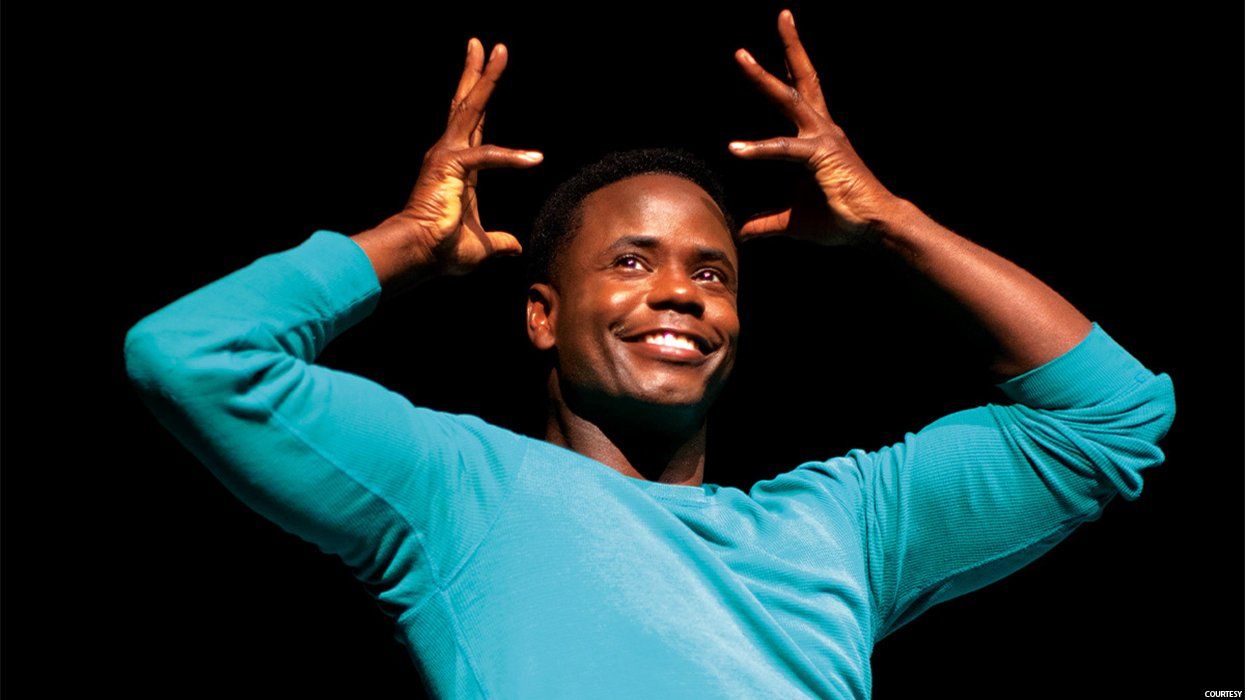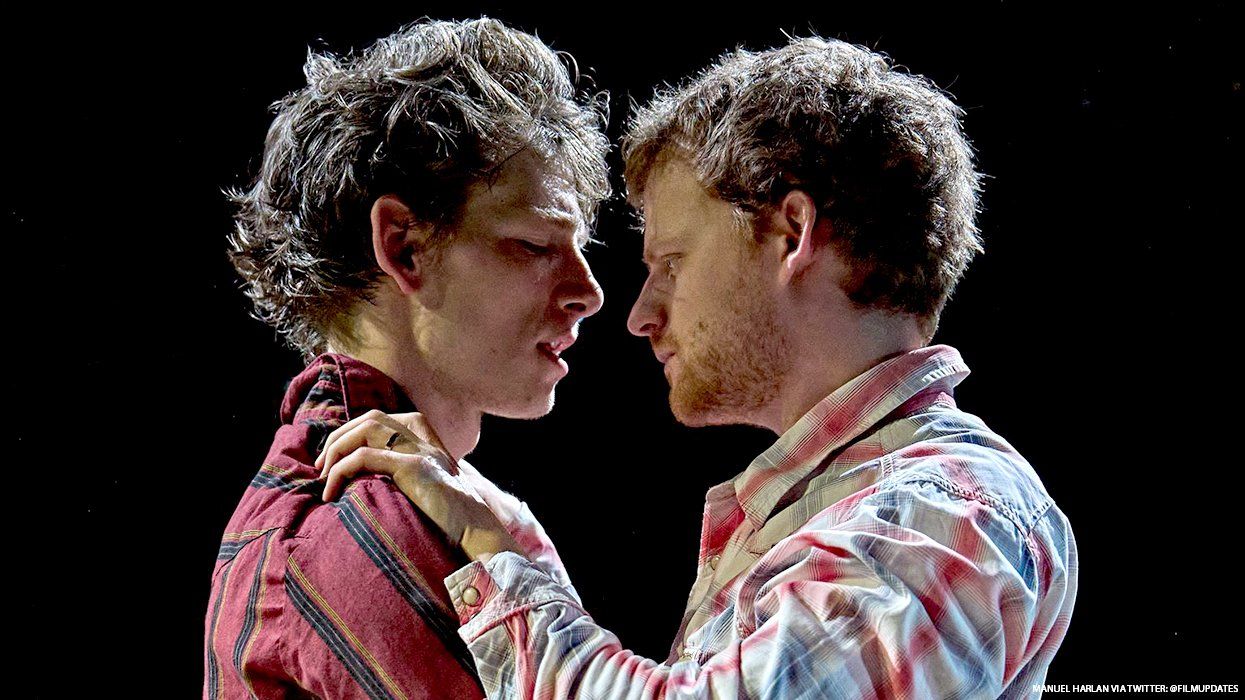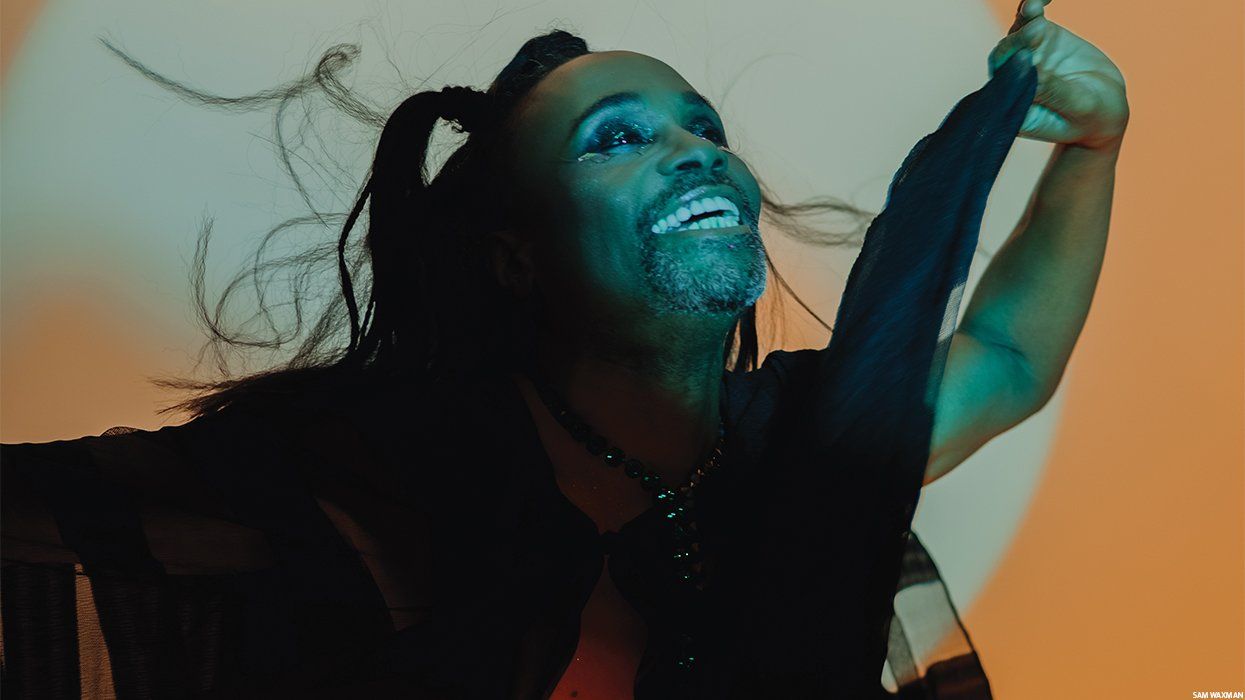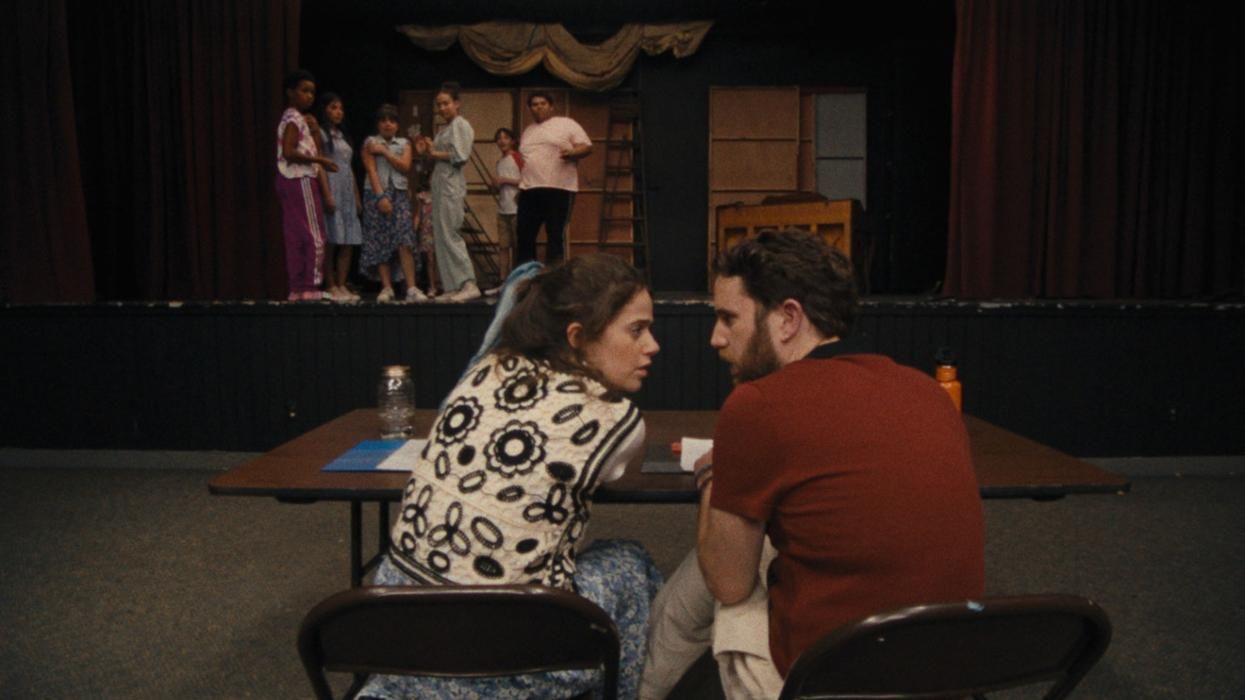Pictured: Tim Pigott-Smith in King Charles III
Mike Bartlett, perhaps best known to American audiences for his 2009 play Cock, took London by storm in 2014 with the critically acclaimed and award-winning King Charles III. The trans-Atlantic transfer of the mesmerizing "future history play" has now opened on Broadway, and the the powerful and inventive play stands as an unforgettably regal theatrical experience that majestically blends Shakespeare's historical narrative style with plausible speculative fiction.
As the audience files in, there's no curtain or stage-warmer separating them from Tom Scutt's sobering stark and austere set design. In this way, the audience sees the merging of Renaissance theatricality and modern technology: Four pillar candles, a carpeted central platform, a few modern chairs, a seemingly antiquated bench, a modern desk, exposed brick walls, visible lighting instruments, and a decaying fresco featuring faces of people along the back wall sets the tone for the production.
Once the cast has taken their places, Jocelyn Pook's enchanting, evocative score mixes music played on an oboe and English horn with electronic instrumentation, and the cast joins in--singing a haunting Latin hymn in mourning. Queen Elizabeth II has died and Charles ascends the throne. The action of the play takes the audience from the funeral of "Queen Mum" to the coronation of the new monarch, some three months afterwards. True to Shakespearean form, Bartlett's play never disparages the ruling family but doles out plenty of advice on how to rule effectively.
Bartlett's script is keenly constructed, giving weight and power to each word chosen. Attending to every detail in spoken dialogue, Bartlett plucks the ripest fruits of metaphor and artistically elevated language when his characters are allowed to communicate in truly sublime moments of blank verse. Yet, even when speaking in the modern fashion -- just as he did with Cock -- Bartlett purposefully measures each word for nuance and command. Likewsie, director Rupert Goold and each member of the cast carries the rich tapestry of Bartlett's dialogue like a banner, performing in such a way that one can even imagine King Charles III succeeding as a radio-play.
Starring as the titular character, Tim Pigott-Smith's masterful performance conveys a man who stubbornly desires to be the best monarch imaginable. His wait for the throne has been longer than he ever anticipated, and he grabs hold of the scepter and crown with indefatigable charisma. Like the titular characters of Hamlet and King Lear, indecision and hubris plague his ability to be an efficacious leader. Caught between opposing opinions and conflicted by his own personal feelings about a troubling bill that would protect a notion of privacy by applying stricter regulations on the press, Pigott-Smith's Charles exists in a tightly confining liminal space where he is expected to only act as a figurehead monarch. However, he wants more and opines:
I am an empty vessel, waiting for
Instruction, soulless and uncorporate,
... I'm Charles no more
The human being, but transformed into
A spitting image puppet, lying prone
Upon the table waiting for some man
To come and then inserting his own hand,
Do operate the image of the King
This restricted existence leaves Pigott-Smith's likeable Charles to be manipulated by the cunning politicians who connive and conspire to serve their own needs, namely Adam James' beguiling Prime Minster, named Mr. Evans, and Anthony Calf's shrewd and sharply intelligent Mr. Stevens, the leader of the opposing Parliamentary party. In an attempt to rule fairly and with the utmost authority, Charles gives each party equal time to confer with him on judicial matters. Regarding the bill in question, the Prime Minister champions it becoming a law and demands the newly minted King sign on the dotted line posthaste. To validate his point, he states that regardless of her personal thoughts "She [Queen Elizabeth II] always signed. She always gave assent."
Like any Shakespearean history play, the conflicts in the plot are not only political. Bartlett crafts a world rife with familial struggles as well. Prince Harry, played with youthful energy by Richard Goulding, is uncertain of himself and his desires. He falls for a young art student -- who is reminiscent of Falstaff and Touchstone -- named Jess, played with both captivating wit and sincerity by Tafline Steen. Drawn into the world of tabloid celebrity because of her dalliances with the rambunctious royal, Jess is soon blackmailed because of a certain lascivious photo she sent to a previous boyfriend. Here the political and familial meld to add additional weight to Charles' decisions.
Oliver Chris & Lydia Wilson
Other domestic problems abound, too. In other corners of the family, ambition rears its ugly head. Kate, masterfully brought to stunning life by Lydia Wilson, is a glorious Lady Macbeth-like character. Proving that she's considerably more than a piece of candy to be draped on the arm of handsome William (Oliver Chris), Wilson creates a clever character who is deliciously calculating. Not content simply being a duchess, she urges William to convince his father to abandon the throne, saying, "I do not think you weak at all but wrong. / Become the man I know you are and act."
Heavy is the head that wears the crown, even if that person is only seen as a figurehead monarch. In Bartlett's smartly written and exquisitely performed drama, royal authority is challenged, a corrupt political system is exposed, familial drama complicates matters, and the power of language and what we are freely allowed to express are deftly explored. Impeccable pacing, steady direction, and the magic of superb acting create an evening of spectacle-free theatricality that is as impressive as it is entertaining. Let it be decreed, only a silly fool would dare miss an audience with King Charles III.
King Charles III at the Music Box Theatre, 239 W. 45th St., NYC


